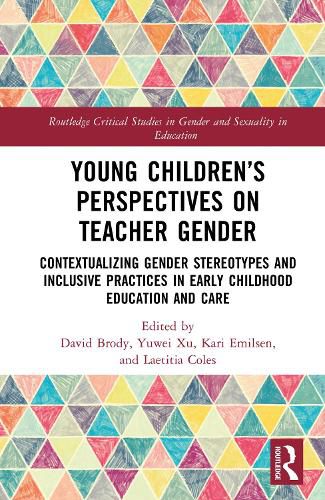Readings Newsletter
Become a Readings Member to make your shopping experience even easier.
Sign in or sign up for free!
You’re not far away from qualifying for FREE standard shipping within Australia
You’ve qualified for FREE standard shipping within Australia
The cart is loading…






This book draws on ethnographic studies in nine countries across six continents to examine children's perspectives on their male and female teachers.
Contributors from China, Brazil, Australia, South Africa, Israel, Turkey, Norway, UK, and the USA present case studies based on early childhood education sites where both men and women work. Using the Mosaic approach, the book uses data collected through various methodologies, along with extensive observations and interviews with setting directors, teachers, and parents. The chapters highlight the children's perspectives on their caregivers and teachers within their socio-cultural contexts. The authors also consider macro-level cultural contexts to enhance the micro-picture from the children's evidence and demonstrate how children's perspectives are influenced by various ecologies and cultural contexts, with intersectionality such as tradition, race, and religion playing important roles. The book ends with a cross-country analysis and recommendations for gender-sensitive pedagogies that consider local cultural gender sensibilities.
This groundbreaking book will appeal to scholars and researchers in early childhood education, gender and sexuality in education, and diversity and equity in education.
$9.00 standard shipping within Australia
FREE standard shipping within Australia for orders over $100.00
Express & International shipping calculated at checkout
This book draws on ethnographic studies in nine countries across six continents to examine children's perspectives on their male and female teachers.
Contributors from China, Brazil, Australia, South Africa, Israel, Turkey, Norway, UK, and the USA present case studies based on early childhood education sites where both men and women work. Using the Mosaic approach, the book uses data collected through various methodologies, along with extensive observations and interviews with setting directors, teachers, and parents. The chapters highlight the children's perspectives on their caregivers and teachers within their socio-cultural contexts. The authors also consider macro-level cultural contexts to enhance the micro-picture from the children's evidence and demonstrate how children's perspectives are influenced by various ecologies and cultural contexts, with intersectionality such as tradition, race, and religion playing important roles. The book ends with a cross-country analysis and recommendations for gender-sensitive pedagogies that consider local cultural gender sensibilities.
This groundbreaking book will appeal to scholars and researchers in early childhood education, gender and sexuality in education, and diversity and equity in education.